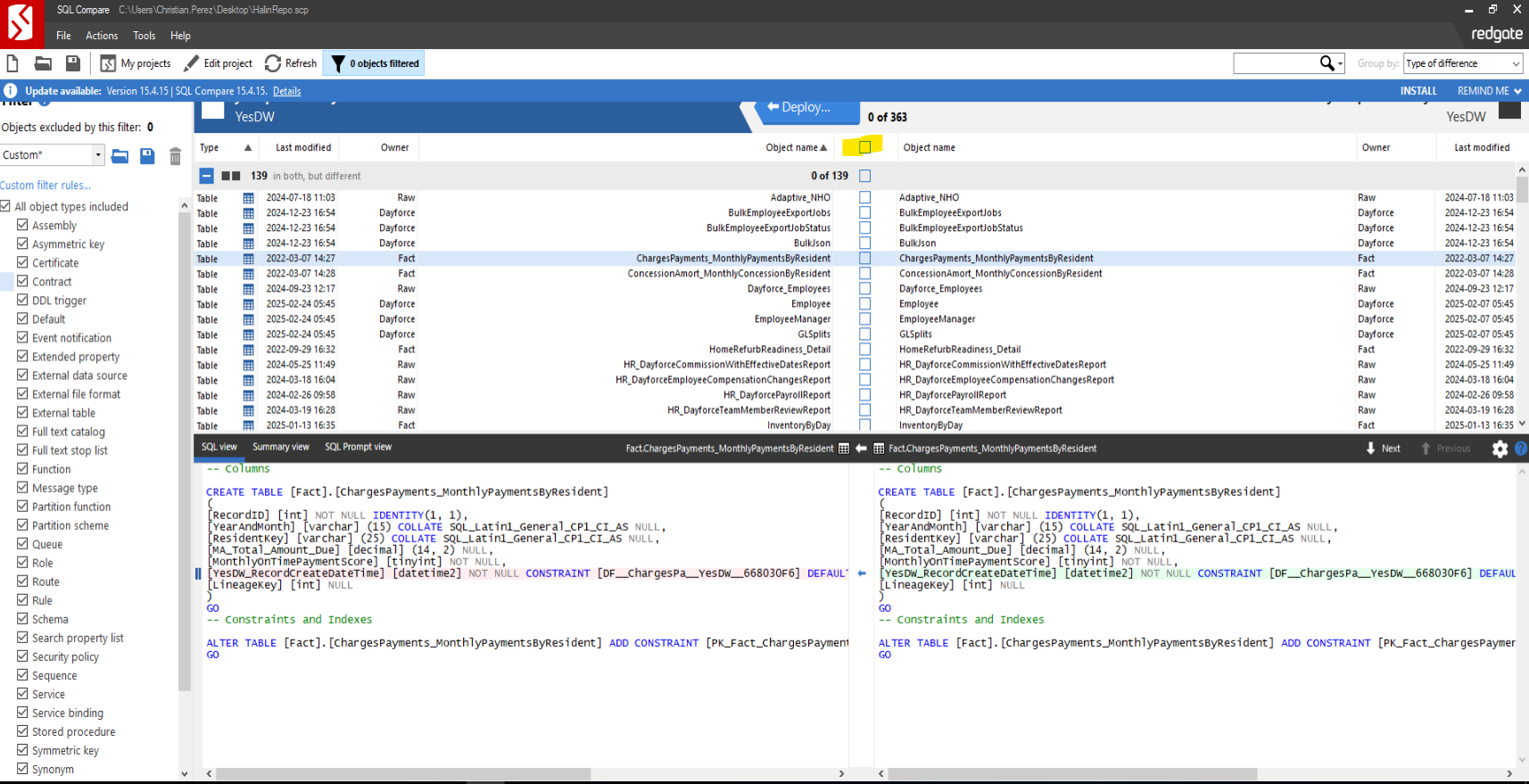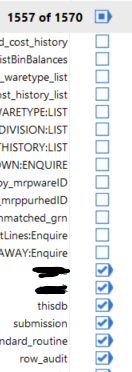Comments
3 comments
-
 Official comment
Official commentHi James,
Hope this finds you well, thanks for reaching out to Redgate Support regarding your issue with Compare. In this case, is the de-select all options not sufficient for your use-case? As for refreshing the comparison, it already behaves in the manner you describe, if I select only a few objects from below comparison and then hit refresh, the same objects are selected after the comparison is completed.

If the above is not what you are referring to, could I kindly request a screenshot of the behavior in question?
-

Hi Christian,
Thanks for your response.
Because of the danger of the behaviour i descibed, - I have to be vigilant when first loading a new compare and manually unselect everything from the top. Therefore my question was why can't I set it to default like this all the time. But I suppose it would be difficult for the software to properly distinguish between a new compare and a repeated compare against a different target?
The dangerous behavour I am witnessing from time to time however, is that reloading the compare (either refresh or switching one of the source or target) is auto-selecting items.
So lets say I am promoting a local change to my dev environment and immediately want to promote that to test and then UAT in quick succession. I might hope to select the 1 single item in my first compare local|dev and promote and then when I reload my compare to either local|test or dev|test it should either, in my view, reset to all unselected for safety or try and reload the equivalent last selection. What it should not do is reload the equivalent last selection and then decide to load some other items. Which if not noticing means that a press of deploy results in deploying more than 1 item (in the above example).
Your reply suggests that the behaviour I encounter is not by design then? In your example you refreshed the same database - what happens if you create/amend objects between the refreshes - do new/amended objects get loaded auto-selected? Or when you switch your target to the same database but on a different server does it select only the same named objects as your original selection?
As you can probably imagine if I encounter this again I will only be able to screenshot the second snapshot and you would have to take my word for it doing it automatically. Otherwise, i will try and find some free time out of working hours to see if i can engineer example steps to replicate the issue.
regards, James
-

As an example on a tangent, when i'm creating a script for a database install i will compare my source database to the empty model database and compare auto-selects in general all of the items. But as i go thru each of my source databases i will move to one where it neglects to select all of the items. When i reorder the list to bring the unselected items to the top to view them i'm left wondering what's so [un]special about these that they have not been auto-selected?

and on this database it seems to know that i will want to exclude these 2 synonyms whereas on the above example i don't want to exclude that list it has decided not to select

Add comment
Please sign in to leave a comment.
Something for years which has annoyed me and i've just grinned and beared it thinking it must be some behaviour toggle i haven't found yet so today i finally ask the question.
Why does SQL Compare decide to seemingly randomly auto-select items to deploy on opening and refresh? This is surely very dangersous so there must be some logic to it.
Regardless of whether some users actually want this feature is it possible to turn it off so that when i load a new comparison it selects NOTHING and when i refresh a comparison it selects only what i already had selected?
As I want to be in control over what i move between environments carefully
(A selective rathan than a ‘Deploy ALL dependencies’ screen would be a dream too)